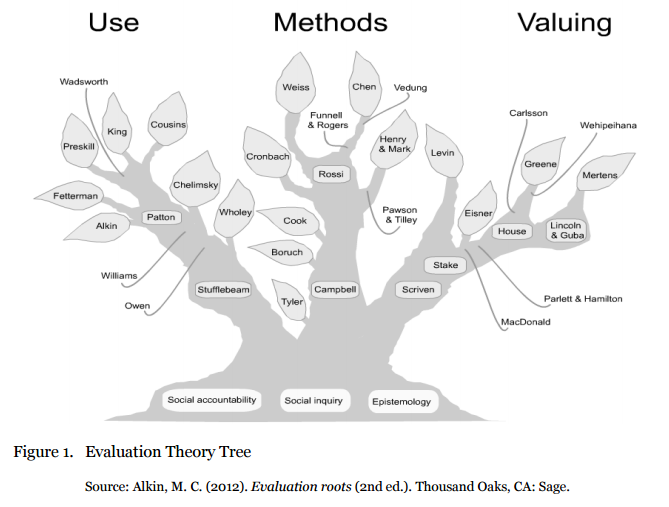Bringing Together Evaluation Theory and Practice
As a graduate student in evaluation, I find myself often pondering how research on evaluation can or should enrich evaluation practice. So, during my summer internship at Informing Change, I organized a pop-up journal club—an opportunity for evaluators to read and discuss evaluation research with their colleagues. I circulated a few theory papers via email and the group elected to read Evaluation and Organizational Learning: Past, Present, and Future by Rosalie Torres and Hallie Preskill. The following week, about 10 of us got together over pizza for a facilitated yet casual conversation.
Our conversation grappled with the relationship between how evaluation reads in theory and how it manifests in practice. For the practitioners and me around the table, Torres and Preskill’s work on evaluation theory, and our subsequent conversation, reminded us of some helpful frameworks for thinking about evaluation. It also gave us an opportunity to bounce ideas off one another, move our collective thinking forward, and brought big-picture questions about Informing Change’s work to the surface. In a nutshell: discussing theory can help evaluation practitioners meaningfully reflect on their practice. Here are my top three takeaways:
Theory offers practitioners a framework and context for their evaluation work.
As our conversation unfolded, we zeroed in on a question that weighs heavily in both theory and practice: what is the role of the evaluator? As people around the table began talking through different roles, I noticed their ideas began to align with the Evaluation Theory Tree developed by Marv Alkin and Tina Christie. I sketched it on the board and walked through the different “branches” of evaluation theory: methods, use, and valuing. The Theory Tree focused our conversation and grounded some of these theoretical elements—like the role of an evaluator—in a visual that was analogous to the roles the Informing Change practitioners recognized in their work.

A conversation about big ideas/theory creates an opportunity for people from different backgrounds and leadership levels to participate in a shared dialogue. During our discussion, different perspectives on the role of an evaluator emerged, we shared personal stories and challenges, and ideas for future team conversations rose to the surface. Furthermore, people who rarely work together had the opportunity to collaborate and brainstorm with peers.
Reflection on practice is important.
Last year, Thomas Schwandt gave a talk at the UCLA School of Education and asserted that to “live a life of the mind for practice,” evaluators need to be involved in communities that engage in study and analysis of evaluation theory. Our work as evaluators is often fast paced, so it is easy to get caught up in execution. However, it is important to make time to reflect on the big picture and think creatively. This not only improves an individual’s practice, but also supports organizational learning.
At the end of the hour, I asked the group to quickly share one takeaway from our conversation. The room was buzzing with energy as people shared what they learned and expressed enthusiasm for continuing this practice. The group agreed that stepping away from their desks to talk about theory offered them an opportunity to reflect, build relationships and generate new ideas. I look forward to joining the next pop-up journal club!

